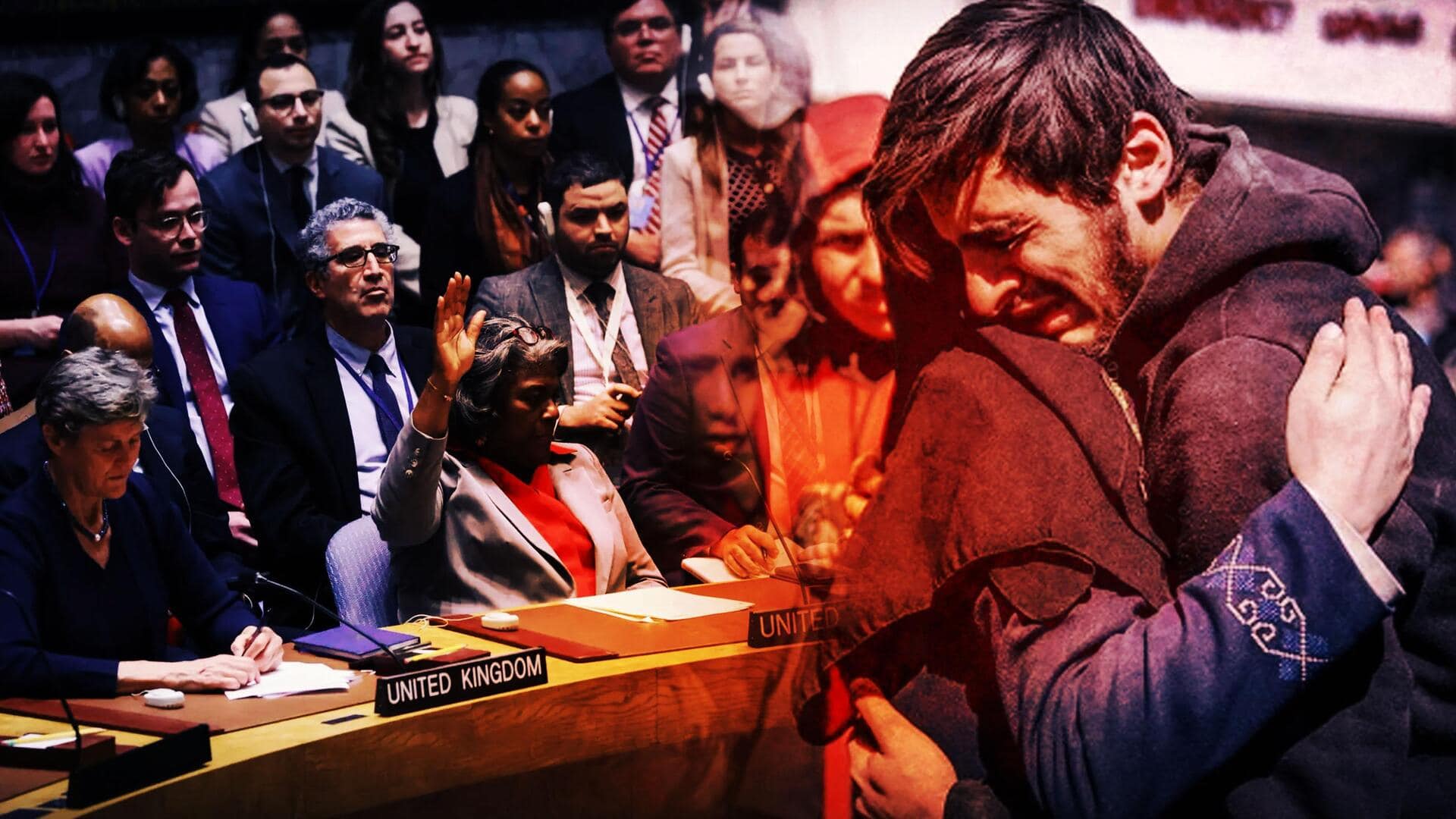
Explained: Enforceability of UN Security Council's Gaza ceasefire resolution
What's the story
After over five months of the Israel-Hamas war, the United Nations Security Council (UNSC) on Monday demanded for an immediate ceasefire in Gaza. Israel's ally, the United States (US)—which had vetoed previous drafts—abstained from voting on the resolution, which was passed by 14-0. Here's what we know about the resolution, what it means for the Israel-Hamas war and whether it can be enforced legally.
Potential impact
UNSC resolution and its potential impact
The ceasefire resolution was sponsored by Algeria, which advocated for a truce that would lead to a "lasting, sustainable ceasefire." It also demanded that Hamas and other militant groups release hostages taken during the attack on October 7. Mark Lyall-Grant, who previously served as the UK ambassador to the UN, suggested that this resolution effectively requires Israel to suspend its military operations for the next 15 days—the remainder of the Islamic holy month of Ramzan.
Officially passed
First UNSC resolution on ceasefire in Gaza
This is the first time that the UNSC has officially passed a resolution on an "immediate ceasefire" in Gaza. If the conflict continues despite this, it could spark debates about Israel's non-compliance with the security council's decision. While the UNSC resolutions are legally binding under the United Nations Charter for all 193 member nations, enforcement is ultimately up to the conflicting parties and the council itself.
Twitter Post
UN's statement after the passage of resolution
In favour: 14
— United Nations (@UN) March 25, 2024
Against: 0
Abstention: 1
The UN Security Council has adopted a resolution demanding an immediate ceasefire in Gaza and the immediate, unconditional release of all hostages.https://t.co/nOBuQOkxnj pic.twitter.com/QkZ7J7wHgi
Abstention
US abstains from vote, clarifies its position
Meanwhile, US Secretary of State Antony Blinken justified the country's abstention by pointing out that the final draft of the resolution didn't include "key language we view as essential." US Ambassador to UN Linda Thomas-Greenfield acknowledged the adjustments made per US request in the resolution but said they couldn't offer full support to it due to disagreements. America's support for Israel has dwindled over time, particularly as Israel plans an attack on Rafah—the last resort for Palestinians in Gaza.
Disapproval
Israel's disapproval of UNSC resolution
Prime Minister Benjamin Netanyahu's office described the US's decision not to veto it as a significant shift from its earlier stance. Israel's Defense Minister Yoav Gallant argued that Israel has "no moral right to stop the war in Gaza until all the abductees return home" and labeled the UN's decision as "scandalous." Meanwhile, Israel's UN ambassador Gilad Erdan said, "The resolution says that taking civilians hostage is in violation of international law...on the other hand, you demand a ceasefire."
Reactions
How has the rest of the world responded
The UN Secretary General, Antonio Guterres, said the resolution "must be implemented," adding that failure to do so would be "unforgivable." European Commission's President, Ursula von der Leyen, said, "Implementation of this resolution is vital for the protection of all civilians." Separately, France has advocated to initiate efforts toward a "permanent" ceasefire. Human rights groups and NGOs such as Amnesty International and Oxfam also hailed the resolution, calling it "long overdue."